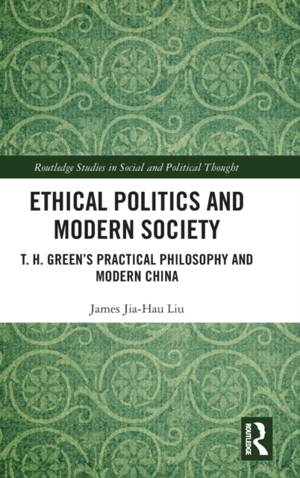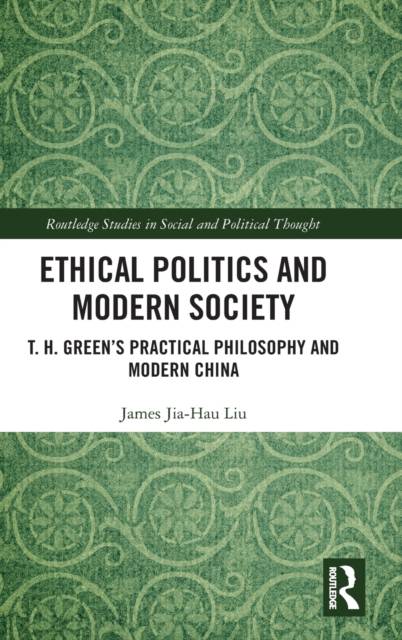
- Retrait gratuit dans votre magasin Club
- 7.000.000 titres dans notre catalogue
- Payer en toute sécurité
- Toujours un magasin près de chez vous
- Retrait gratuit dans votre magasin Club
- 7.000.0000 titres dans notre catalogue
- Payer en toute sécurité
- Toujours un magasin près de chez vous
Ethical Politics and Modern Society
T. H. Green's Practical Philosophy and Modern China
James Jia-Hau LiuDescription
Ethical Politics and Modern Society introduces and critically examines British idealist philosopher, Thomas Hill Green, his practical philosophy, and its reception in China between the late nineteenth century and the early twentieth century.
As a response to the modernity issue in Great Britain, Green's philosophy, in particular his ethical politics, anticipated a practical solution to the individual alienation issue in modern society. Witnessing the resemblance between Green's ethical politics and classical Chinese ethical and political thought, some Chinese scholars became inclined to take Green's thought as an intellectual approach to assimilate Western modernity. While Green and the Chinese scholars both intended to articulate an ethical conception of modern politics in response to the issue of modernity, their results were very different. In this book, James Jia-Hau Liu analyses why modern Chinese scholars introduced Green's philosophy to China and why the studies of Green's philosophy in China have since faded away. Modern Chinese scholars, such as Gao Yi-Han, Chin Yueh-Lin, Tang Jun-Yi, Chang Fo-Chuan, and Yin Hai-Guang, are explored in greater detail. The contradictory standings towards modernity between Green and Chinese scholars illustrate how to understand the difference forms of modernity that can be embodied therein.
Ethical Politics and Modern Society is a valuable resource to scholars of political philosophy, political theory, history of social and political thought, British idealism, and the work of Thomas Hill Green.
Spécifications
Parties prenantes
- Auteur(s) :
- Editeur:
Contenu
- Nombre de pages :
- 168
- Langue:
- Anglais
- Collection :
Caractéristiques
- EAN:
- 9781138505360
- Date de parution :
- 25-09-19
- Format:
- Livre relié
- Format numérique:
- Genaaid
- Dimensions :
- 157 mm x 231 mm
- Poids :
- 136 g

Les avis
Nous publions uniquement les avis qui respectent les conditions requises. Consultez nos conditions pour les avis.






